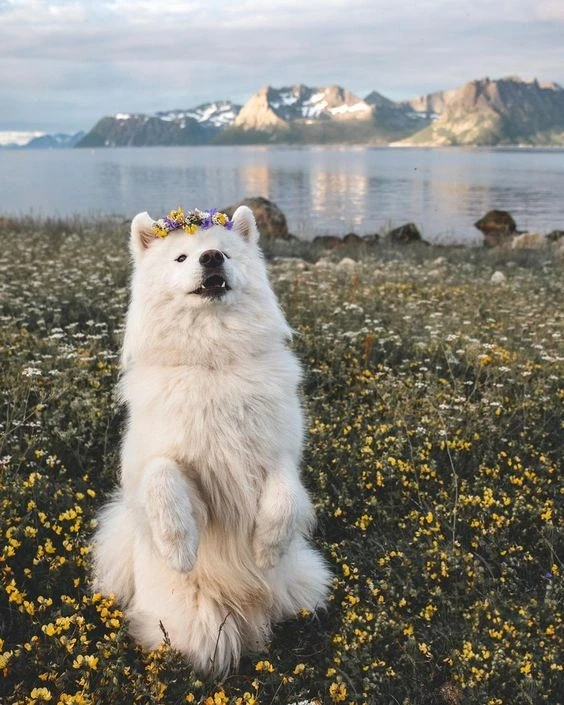
Samoyed
About
The Samoyed is a friendly, intelligent, and devoted breed that makes an excellent companion for families and active individuals. With their beautiful appearance, loyalty, and lively nature, they thrive in homes where they receive ample attention, exercise, and affection. Their adaptability, combined with their history of working alongside humans, makes them a beloved member of any household.
 Breed Size
Breed Size
-
Weight (Male)
20-29 kg
-
Weight (Female)
16-27 kg
-
Height (Male)
48-60 sm
-
Height (Female)
48-60 sm
 Coat
Coat
-
Fur Type
Double
-
Color
One color
 Care
Care
-
Walk
>45 minutes/day
-
Breed group
Working Group
-
Breed Size
M
-
Demeanor category
Friendly
 Breed Traits
Breed Traits
-
Barking
-
Good with young children
-
Drooling
-
Energy level value
-
Grooming frequency value
-
Good with other dogs
-
Trainability
 Breeds Club Recognition
Breeds Club Recognition
-
Trainability Category
>Independent
-
Temperament
>Adaptable, Friendly, Gentle
Description
The Samoyed is a medium-to-large working dog, originally bred in Siberia for herding reindeer, pulling sleds, and guarding. This breed descends from ancient Arctic spitz-type dogs, resulting in an intelligent, strong, and highly affectionate companion.
- Origin: Siberia, developed for herding and sledding.
- Smart and trainable: Quick learner but can be independent.
- Loyal and affectionate: Forms deep bonds with its family.
- Energetic and playful: Requires daily exercise and mental stimulation.
- Thick, fluffy double coat: Weather-resistant but sheds heavily and needs regular grooming.
The Samoyed is a friendly and social companion, excelling in herding, obedience, and sledding. With proper training and early socialization, they become well-mannered, affectionate pets suited for active families and cold-weather environments.
